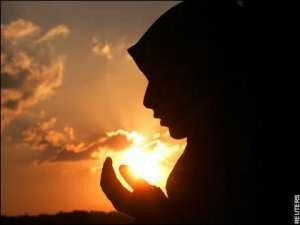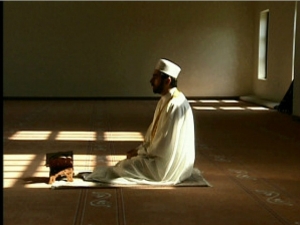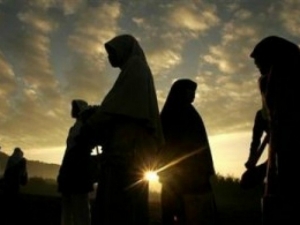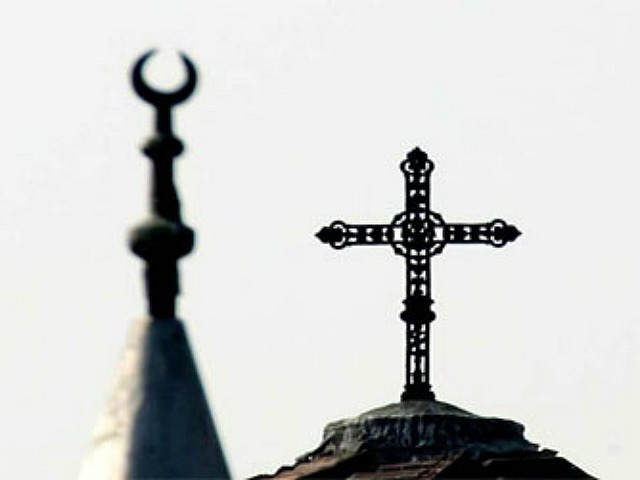At the end of the grade 10 CST class, students are asked to do a project in which they reflect upon a foreign religious practice. Every year, as we read through the reflections, we are struck by the wisdom and self-learning that is found in the students’ writings. So, we thought it would make sense to share some of these with the larger community. Here are three reflections on how Islam has taught students something about themselves and about their faith.
Wearing the Hijab by Sarah Currie
For the year end Christian studies project this year, our class was invited to partake in a new religious practice or tradition (preferably one outside of Christianity). In spirit of the assignment, I decided to don the Muslim headdress (called the hijab) for a week. We had learned a bit about the cultural implications of wearing a hijab in class, but nothing could prepare me for what I experienced over the next few days. On day one of the experiment, I hit the first bump in the road – actually getting the hijab to stay on my head. A few tonnes of bobby pins and a few headbands later, I innocently crept towards the front door of my house, only to be pelted with my mother’s ringing shrieks as she saw what I was wearing on my head. She promptly sat me down and gave me a 20 minute lecture on the oppression of women in the Middle East, and how whatever it was that I was wearing on my head was a symbol of their hopeless struggle against tyrannical males. After listening to my explanations of how wearing the hijab in Canada is a choice that women make independently to try to further their relationship with God, she launched into another 30 minute argument on whether or not Muslim women in Canada were just brainwashed by years of tradition and they don’t know what they really want yet. I think in the end I managed to convince her that hijabs are still a relevant religious practice in today’s society, and that they aren’t just some invention to make the women of Islam more submissive.

After witnessing my own mother’s reaction to seeing my hijab, I was interested to see what the reactions of the general populous would be. I was sure that everyone would be just as vocal and reactant as my mother was – which was what led me to be surprised when I actually went out into my neighbourhood to gauge everyone else’s reactions. Contrary to my belief that everyone would be against the hijab from the first moment they laid eyes on it, everyone was relatively accepting of the hijab. What surprised me the most was that no one even stared at the hijab openly – although according to my sister, who walked with me, I did get a lot of backward glances. I found it really funny how almost everyone would look up, notice the hijab, and then widen their eyes in horror before ripping them away from me and trying to compose their expressions as they realized that I had noticed them looking at the hijab. I know that I am guilty of doing this myself – you are trying to be polite by not staring at a person who dresses or acts differently, so you end up purposely avoiding their eyes and then whipping your head around to stare at them as soon as they walk past you. It’s ironic, because it’s almost more noticeable than just looking at someone for a few seconds without trying to avoid eye contact. Anyways, I’m not sure if the people who stared at me were just confused as to why I was wearing a hijab – I don’t really look like I’m from the middle east, and I think that lots of people probably share the same stereotypes about the way that a Muslim should look. I only got one glare from a stranger, and that stranger was about 5 years old, and he was glaring at everyone (maybe he was having a bad day?). I honestly had expected people to be a lot more judgmental and rude than they were, and I think that I went into this project with an unfair prejudice against the public. I’m beginning to think that it’s just as bad to expect racism from people as it is to be racist against them. Doesn’t categorizing one type of people to be more racist than another make the observer a racist too?
I was thinking about the way that wearing my hijab has made me feel over the course of the week, and I think that it’s overall effect was that of a small burden being lifted off my shoulders – knowing that people would look at me and just see the hijab somehow allowed me to forget about whatever I looked like on the outside and focus more about what was going on inside. I’m pretty sure that I prayed a lot more than I usually do, and I definitely felt a lot calmer and like I had things more under control. I think that wearing the hijab simplified my life – sort of like removing variables from a science experiment to get to the heart of the exercise. Although I don’t believe that having uncovered hair is immodest, I think that wearing the hijab was an awesome way to relieve stress in my life; and in my experience, I think that the pros of wearing the hijab outweighed the cons. Feeling more calm and close to God was definitely worth the weird looks and rude stares, and I think that I can understand why Muslim women decide to put themselves through it. What I find the most amazing about their faith is that after deciding to wear the hijab, almost none of them take it off permanently, even after experiencing (in some cases) enormous amounts of racism. I don’t know if I would be able to show that much commitment to my faith by keeping my hijab on and choosing to brave the storm, even though I could just take it off and be treated like a normal person.
I’m really glad that I decided to wear the hijab for this project, because before I wore one myself, I didn’t have a clue as to why any person would willingly wear something that they knew would subject them to racism and prejudice. The commitment that Muslims show to their religion is astounding, and as a Christian, I feel enormous respect for them – if I had to wear the hijab and long sleeves for my whole life (including hot summer days and swimming practice) I know that I probably wouldn’t be so eager to wear it as I am now. It kind of makes me feel as though my zeal in my worship of God is a bit lacking… Muslim people take the time to pray 5 times a day in the same circumstances as we live in, so shouldn’t we be doing that too? I feel like such a slacker compared to them… if they can make their religion the centre of their lives in today’s society, I think that it is our duty as Christians to do so as well. Even though I’m definitely not going to wear a hijab for the rest of my life (I’m not sure if I could handle that much religious enthusiasm all at once), I think I am going to start praying at least 5 times a day like they do in Islam. If they can do it, we should be able to do it too.
Praying Five Times a Day by Maddy Loewen
 For my year-end project I decided to pray five times a day for five days. I kept a journal throughout this process writing down my thoughts, struggles, and things I had learnt during the five-day period.
For my year-end project I decided to pray five times a day for five days. I kept a journal throughout this process writing down my thoughts, struggles, and things I had learnt during the five-day period.
During the first day I really enjoyed feeling closer to God. Normally, I would never pray five times in one day. The hardest part of praying this much is focusing on God. My mind would wonder off very easily. It’s so easy to start to think about other things and become distracted. I can’t imagine how focused the Muslim people would have to be, for them it’s not just a religion. It is their way of life. As the day went on I tried to focus on praying for things that I might take for granted or things that I would normally forget about. I find that if I have a topic to pray about then I can focus a lot better.
On the second day, I had a very interesting experience. It was lunchtime; I took a seat at a table, folded my hands and said a quick prayer in my head. People around me looked at me funny and asked what I was doing. I found that very odd. Praying before you eat dinner is a very common thing, but taking time out of your day to pray before lunch seemed so strange and uncommon to those around me. I felt like I should make praying at lunch more of a priority or routine.
By the third day, praying five times a day started to get a bit annoying. I felt like I didn’t have enough time in my day to stop and pray. I don’t know how Muslims do it. I guess if that’s how you were brought up it would be completely normal, but for me it was a lot harder than it seemed. From this experience I learnt that I should make praying and other religious activities more of a priority.
On day four it finally became a part of my routine! Though at that point I was running out of ideas to pray about. I found myself praying about the same stuff over and over again. But that wasn’t exactly a bad thing. Â I noticed myself becoming more observant to others around me. I started listening a lot more carefully to the news so I could pray for people who were in some pretty terrible situations. I have to say though, at the beginning – praying five times a day was pretty hard, but I actually kind of liked it. It really makes you think and reflect on your life a lot more than one usually would!
On the last day, I realized that I have never prayed 25 times over a course of just 5 days. It was a pretty great experience. I felt a lot closer to God than I normally do. It made me think a lot more about others and myself. It made me become creative with my praying so I didn’t get bored and wander away with thought. Through this journey I have gained a lot of respect for Islam. Muslims build their whole day around praying to God. I felt a strong connection just after 5 days, so I can’t imagine how they must feel if they have been doing it their whole lives! I went into this project thinking that it wasn’t going to be hard, and it wasn’t. But what I found so interesting was how much I learnt about myself, others, and the world.
Partaking in the Ramadan Fast by Allison Janzen
 I chose to spend a week fasting during the daylight hours, which is called Ramadan. Before the week started, I decided that I needed to find a way to make this week more religious, and so I made a rule for myself that whenever I noticed that I was hungry, I would pray.
I chose to spend a week fasting during the daylight hours, which is called Ramadan. Before the week started, I decided that I needed to find a way to make this week more religious, and so I made a rule for myself that whenever I noticed that I was hungry, I would pray.
Preparing myself for the day without food on Sunday, I ate a larger breakfast, and then went to Church, which didn’t really feel Muslim at all. After the service, at my church, we gather in the basement for coffee and cookies. I found it really easy to skip the cookies, as I really wasn’t hungry yet.
I did get hungry, though, on the way to lunch at my grandparent’s place. So I prayed in the car, thanking God for the great day, and that I could get through not eating. Once at my grandparent’s place, I saw a whole bunch of food, just laid out in front of me on the table. Everyone there knew that I wasn’t eating, although attempts to get me to eat were made, but I just ended up sitting at the table with a glass of water, watching everyone else eat. For me, it didn’t feel out of place, because I had good company around me, and I was enjoying the conversation.
When I got home, I tried to keep the thought of food out of my mind, although it was a bit difficult. I sent up a lot of short prayers while watching TV. As soon as it got dark out, I went to the fridge and expecting to finish it all in a flash. Turns out, after not eating all day, I wasn’t as hungry as I had anticipated, and could hardly finish the food on my plate.
On Monday, I woke up as regular for school, and ate breakfast. Still larger than what I would normally have, but smaller than the one I had on Sunday. I was beginning to get used to the fasting during the day, but it was also made easier that I had chosen the week that included the shortest day of the year. During the spare where I would usually eat in the cafeteria, I found myself hungrier than I was during the later lunch on Tuesday.
Then I almost messed up. With secret Santas gifting things everywhere, almost everyone in the school had candy. In class, I was offered a Mike and Ike, which turned out to be a dreadfully sinful little jelly bean like thing. I took it, and stuck it in my mouth without realizing that I was eating. Luckily, Hannah reminded me that I was fasting, so I spat it out and stuck it in the garbage. I had no idea what would happen if you accidentally broke your fast, I was kind of worried. kept on going with my fast, eating again when it was dark out.
It turns out that it’s okay if you accidentally eat something during Ramadan, according to Ramadan.com.au, where it says “If you have had something to eat or drink accidentally whilst you are fasting, don’t worry! You may continue fasting for the remainder of the day. You don’t need to make up a day for doing this.” I was safe.
On Tuesday, I was getting used to fasting, and it was a lot easier. That day, I had drivers, though, which started right before the sun set, and ended an hour later, as it was the test. While I was waiting for my ride to come, though, I got to talk to a girl in my drivers class who is Muslim, and wears a Hijab.
Wednesday and Thursday went by pretty much the same as the others, as I was used to fasting, and it wasn’t hard to do anymore. However, on Friday, as there was no school, I slept in, and missed the opportunity for breakfast. Praying a lot that day, (and Saturday when I forgot to wake up early again) I clung to my water and tried not to do anything that would make me even hungrier.
During my mini Ramadan, I got a glimpse into what it’s like to be Muslim. Even though I did drink water during my fast, I had never tried fasting before, so it was something that I had to introduce myself to. During the month of Ramadan, for Muslims, they read larger portions of the Quran each day, to really make sure that the only thing that they take in during the day is the Holy scripture. I read parts of the Bible on some days, to put my focus towards God.
What really amazes me, though, is how Muslims do Ramadan. They don’t show it off, and they don’t go around telling people that they’re hungry all day. They just do it, and it’s kind of like a private thing, that doesn’t have to be common knowledge. Their families know that they’re doing it, and are doing it along with them, so they have a community that knows how they’re feeling, but you would never be able to tell that it was the month of Ramadan if you didn’t know the dates of it, or if they had told you outright.
I also find Ramadan to be a lot about discipline. Not just on disciplining yourself not to eat, but also disciplining yourself on how you act with others All in all, I liked the experience of learning about God during my fast, not only through reading His word and communicating to Him, but also through communicating to others, and really appreciating what religion means to others.
